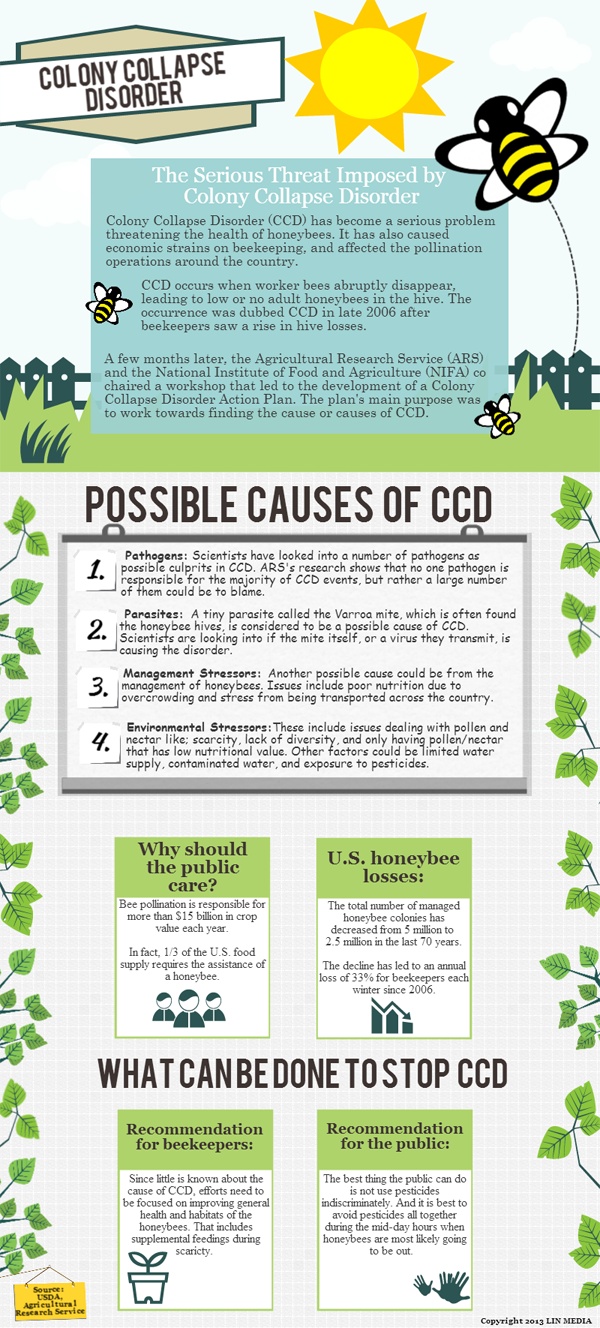Colony collapse is a serious issue for beekeepers, as well as environmentalists, gardeners, orchard owners, or anyone involved in the agriculture industry. This results when hives of helpful European or Western honey bees suddenly disappear, seemingly overnight. These helpful creatures help in keeping the biosphere of certain areas stable, are an important rung on the food chain ladder, and more. Here, we will look at colon collapse disorder statistics, as well as a few hypotheses about what may be causing these sorts of dissolution’s, along with why we should all be concerned with this issue.
Statistics
The Northern Ireland Assembly recently entertained reports that as much as half of the colonies in there are had collapsed. In 2011, it was estimated that around 34% of bees would be lost in that year, alone, which, although it seems a very high loss, is about the same as the three years previous. Costs for bee rental to farmers has increased around 20%, overall, and the loss to those in the agriculture industry is estimated to be in the hundreds of billions of dollars range, unlike any other agricultural tragedy experienced ever before.
What Could Cause This?
Agencies are truly at a loss as to what the possible true cause of colony collapse might be, though there has been much speculation on the topic. Hypotheses include disease, mites, pollution, including sound pollution, use of agricultural chemicals, including pesticides, viruses, and just overall stress. Because we do not yet truly know what is causes colon collapse disorder among bees, many are at a loss as to how to take the first steps to even start preventing this tremendous loss to so many. There are a few conditions that are present at the onset of colony collapse disorder, but it is not yet known how these are connected.
Why Be Concerned?
So why should we be concerned? Not only is the economy suffering massive blows because of this issue, but so is the environment. Many plants that rely on bees are not growing as much as they used to. And many of these plants are also plants that we eat. If bees were to disappear, not only would the agricultural industry suffer a gigantic blow, but the human race would, as well. Gone would be large supplies of honey, as well as certain plants, fruits, some other insects, some birds, and many other flora and fauna.
